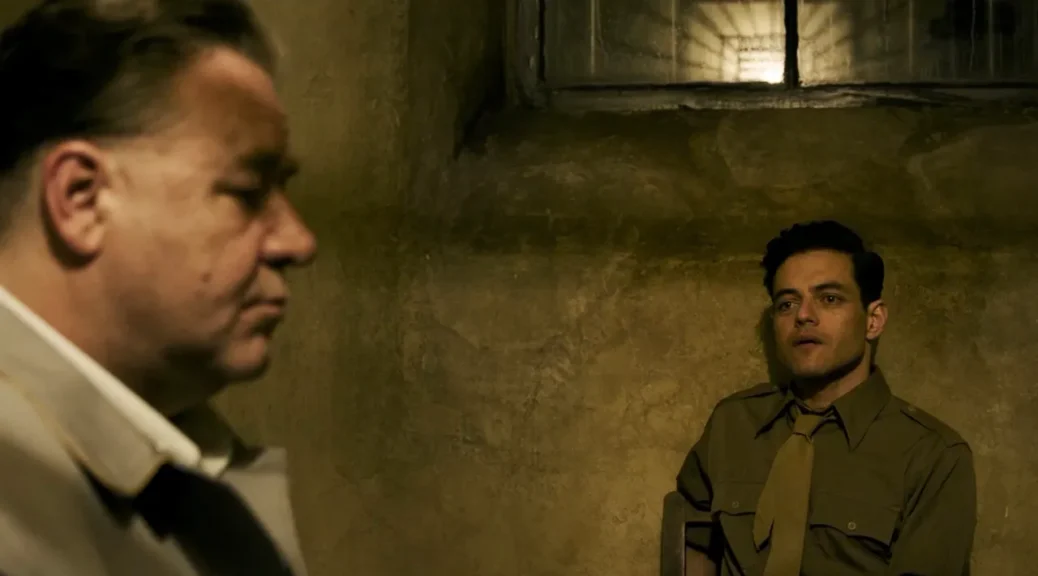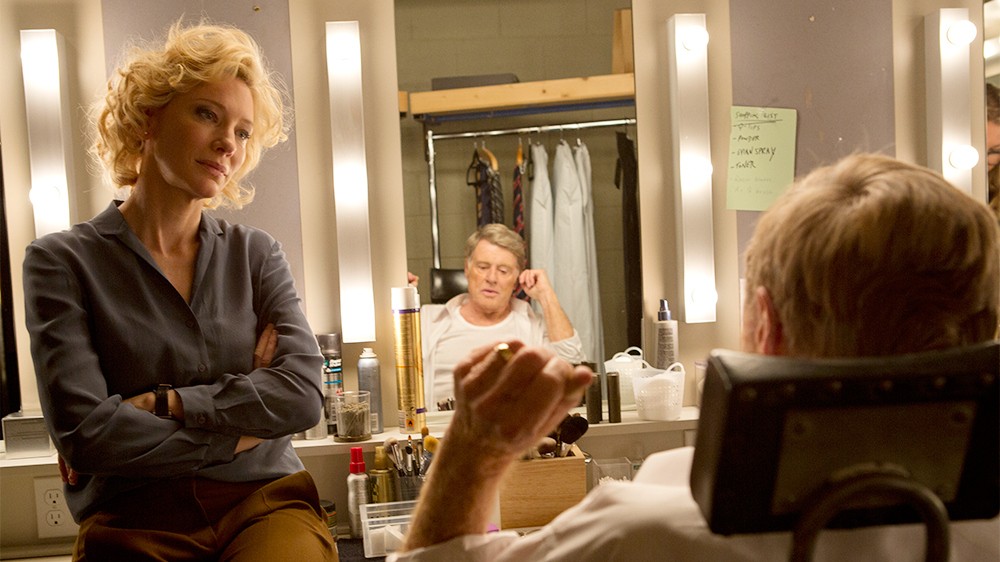Nuremberg
by Hope Madden
There were many reasons to be hopeful for James Vanderbilt’s Nuremberg, chief among them its modern-day resonance and the satisfaction of watching Nazis suffer the consequences of their actions.
Vanderbilt’s impressive ensemble tells the true story of the global court case trying the Nazi high command for crimes against humanity. Russell Crowe delivers an almost fanciful turn as Hermann Göring, sparring with army doctor Douglas Kelley (Rami Malek), assigned to help the prosecution get inside the mind of the monster.
Vanderbilt adapts Jack El-Hai’s book The Nazi and the Psychiatrist, developing the relationship between these two characters as the film’s primary plot. A parallel storyline following Justice Robert Jackson (Michael Shannon) grounds the film in the importance of the trial and its single desired result: to annihilate pro-Nazi sentiment and the white supremacist authoritarianism that fueled it.
Richard E. Grant, John Slattery, Colin Hanks, and Mark O’Brien deliver solid performances, though the film would not have suffered by streamlining both O’Brien and Hanks entirely out of the movie.
Nuremberg‘s problem is not so much its length as its cumbersome scripting. To add the full (and imperative) B-story, the events and characters that orbit the psychiatrist and the Nazi should have been pruned.
Vanderbilt chooses showy direction throughout, cutting from one scene to the next with gimmicks that call to mind classic screwball comedies—a wild, almost horrific mismatch with the material.
There’s such obviousness to the telling of the tale, and not because we know the outcome of the trial but because the character points we shouldn’t know are telegraphed.
Now and again one brilliant line of dialog bursts through, which is almost as frustrating as the otherwise ostentatious script because there’s something here. Something worth telling, in need of telling.
But Vanderbilt buries it under forced emotion (when certainly none needs to be forced) and flamboyant staging. Hard as Nuremberg tries to connect the dots from past to present, it offers no insight. And that’s what’s most frustrating.




